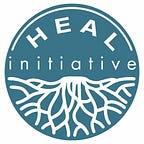How Surgery Cured My Existential Crisis
Written by James Jackson
I donated my kidney 8 years ago. Until recently, I resolved not to talk about my donation for fear of benefiting socially or professionally as a result. I am now writing openly in hopes of bringing attention to an ongoing crisis and to advocate for change.
March 11th is World Kidney Day. Kidney failure, kidney transplant and kidney donation bring together some of the most important issues of our time. The same dynamics of racial injustice, financial inequality, and exploitation are deeply seeded in end-stage renal disease.
While Black people make up about 13% of the population, they account for 35% of the people with kidney failure in the United States. At one year following renal failure, white persons are almost four times more likely to have received a transplant than Black persons. Similar statistics exist for Native and Latinx populations. Kidney disease has been a prescient warning for the crises of the past year, where disproportionate death and devastation has been levied on Black and Brown populations in the United States due to COVID.
There is also critical consideration taking place in medicine surrounding historical race-based care, such as the equation adjustment to calculate kidney function in African Americans. This calculation in turn affects when someone with ESRD is listed for transplantation and causes a delay in eligibility for Black patients.
Kidney donation offers a unique solution to a condition that today afflicts over one-hundred thousand Americans. Consider a millionaire who donates money to a charity. It is commendable, of course. The money may have a significant impact in the lives of many people, but little impact on the donor. There is no real risk for the donor in parting with some of their fortune, and likely no great personal growth to be taken away from the action. In kidney donation, however, the donor not only changes their physical being through surgery, but also imbues their life with purpose and engagement by accepting a share of the cumulative burden of risk. In other words, there is real change and real benefit for both the recipient and the donor.
My life has not been marked by extreme difficulties. As a white man, I have had many privileges and opportunities to pursue education and eventually to become a physician. Early in my medical education, however, I began to sense a growing dissonance between my privileged life and my core belief in health equity. The disconnect reached a critical point late into my first year of medical school, when I learned about non-directed kidney donation. Donating my kidney was an opportunity to reify my values and take a personal stake in solidarity for health equity.
The decision to donate requires internal reflection, acceptance of personal sacrifice, acknowledgement of good fortune, and willing separation from some level of security and privilege in order to work towards redistributive justice. In the same way, our national conversation on racial justice will require a shifting of power away from white people or majority white institutions towards a system with more equitable representation at all levels. This must and can only be a voluntary decision from those in positions of power and privilege.
World Kidney Day is a reminder to acknowledge the deep inequity that underlies kidney disease in the US and that has been further unearthed in COVID era — and today also marks the one-year anniversary of the WHO declaration of the COVID pandemic. By paying attention to kidney disease, access to transplant, and non-directed donation, we may unlock some of the solutions and approaches to address our other national challenges.
James Jackson is a physician practicing Family Medicine and Psychiatry. He is currently a Global Mental Health Fellow with the UCSF/HEAL Initiative working in Nepal.
